Social isolation is a major health risk for older adults
Groups across Mass. are stepping up
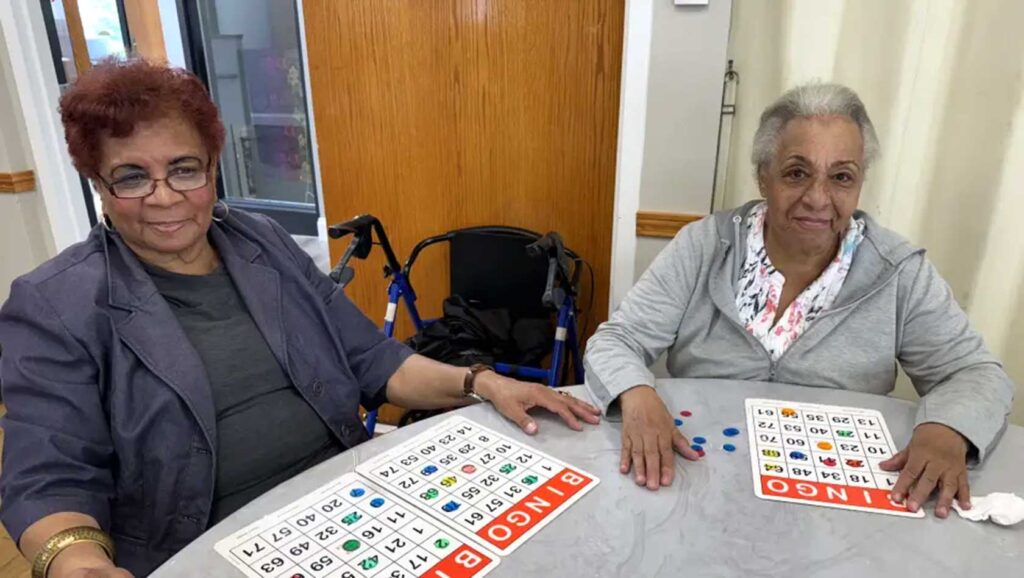
Every day, the senior center at the Massachusetts Alliance of Portuguese Speakers in Cambridge offers an assortment of activities. About 40 participants play dominoes, color in coloring books, take exercise and dance classes and eat lunch together every day.
On a recent Monday morning, it was bingo. Maria Assuncao de Sousa, originally from Portugal, wasn’t winning but she was still having fun.
“Not for me, no luck for me,” she said and laughed. Many of the older adults who come to the senior center have been in the U.S. for decades, mainly from Portugal, Brazil and Cape Verde.
The most important benefit of the senior center, aside from the fun and food, is the opportunity to connect with people around a shared culture and language, and combat loneliness, according to Elen Freitas, the center’s coordinator.
“They feel lonely, and they don’t do anything once they are home, you know, just watching TV, lying down. And here? No,” she said, greeting each of them with a warm hug. “They [are] obligated to have a social life, talk to others [who are] having the same kind of experience.”
While social isolation among older adults is not a new problem, experts say the COVID pandemic exacerbated the challenge.
New data shows that older adults are still feeling the effects. In UMass Boston’s recent Healthy Aging Data report released this spring, researchers found increased rates of depression across New England since their last report in 2018 — up four points to a 35% rate across Massachusetts, and as high as 54% in some towns.
But the pandemic also opened up more conversation about mental health and the importance of social connection. Organizations and policy makers recognize that having an active social life is critical for long-term health and well-being as we age.
Since 2020, addressing isolation has been a bigger focus of programs across the state, like the volunteer-led Massachusetts Coalition to Build Community & End Loneliness, which is bringing together more than 100 nonprofits, local governments and academic institutions to advocate stronger community connections across the state.
Caitlin Coyle, director of the Center for Social and Demographic Research on Aging at UMass Boston’s Gerontology Institute, recently conducted dozens of listening sessions around the city to hear what older adults need. In 2016, she did a similar study and heard mostly about housing and transportation. This year, she said, isolation was on everyone’s mind.
“We heard a lot about third spaces and wanting to connect, and the idea of meeting new people,” Coyle said. “Having almost more of these informal … meetups and dinners and just places to be in community with other people.”
Idimaura De Assis, from Angola, said that’s one of the reasons she comes to the senior center. “To be with my friends … everybody.”
Isolation’s impact on physical health
Older adults were told to stay home and isolate during COVID. Betsy Connell, executive director of the group that supports local Councils on Aging across the state, said she heard about “seriously concerning” impacts.
“The Councils on Aging saw individuals who …. may have had moderate cognitive challenges, they became major in a matter of a year, year and a half,” Connell said.
In 2023, the U.S. Surgeon General released an advisory warning about the impact of isolation on health, linking loneliness to a greater risk for conditions like cardiovascular disease, dementia, stroke, depression and anxiety.
“Social isolation is more dangerous than smoking a pack of cigarettes a day,” Connell said.
Family structures are evolving, she noted, meaning more adults may be aging solo. “The concept of ‘nuclear family’ is just so different than it was 50, 75 years ago,” she said.
Coyle said there is now a growing focus on social health. And, like physical health, it gets harder when you stop, like going to the gym.
Most of the older adults who come to the Mass. Alliance of Portuguese Speakers senior center come every day. The staff says that if they miss some days or weeks, they notice a change in their mental health.
Freitas cares for each of them like they are her own family. She started the job after caring for her mother for four years in Brazil.
“They just need somebody [to] be patient with them, give attention, love, that’s all,” she said. “So that’s what we do, we make sure they feel like home.”
Finding connection online
While some older adults bond in person, some are connecting online — and that can be a big advantage, especially for people who are LGBT+.
David Aronstein started OUTstanding Life in 2023 as a virtual gathering space for LGBT+ older adults across the state. The free online platform now has more than 500 members, with grant support from the Massachusetts Healthy Aging Fund.
They host a range of programs on Zoom like finance classes, book clubs and flower arranging workshops.
Carla Morrisey, who is transgender, lives in Worcester and joined the group about a year and a half ago. She transitioned at age 70 after living what she calls an “unauthentic life,” and says the platform has helped her find a sense of belonging.
“They’re so supportive, they’re so friendly,” she said. She hopes more transgender people can realize the importance of finding community. The platform recently launched a monthly support group for transgender adults.
“It was great because … I haven’t found many supports for older trans folks,” she said.
Aronstein says that many older LGBT+ adults grew up in a time that was “quite homophobic,” and they may not always feel welcome at other programs.
“A lot of us don’t feel comfortable going to the local town senior center because they don’t know what kind of reception they’re going to get,” he said, and some people feel they have to hide their identity when they move into nursing homes or assisted living facilities.
Older LGBT+ adults may also be estranged from their family or not have their own biological kids, leading to more isolation. “That sort of natural care network isn’t necessarily there,” he said.
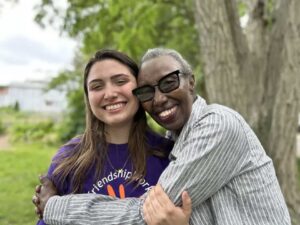
Musabwase Mugemana, right, and Ellen Duncan together in Boston on Tuesday, June 17, 2025. PHOTO: MAGDIELA MATTA/GBH NEWS
Intergenerational friendship and small steps
Some older adults are turning to younger generations for companionship and friendship, like Musabwase Mugemana and Ellen Duncan, friends with a 50-year age gap. FriendshipWorks, a nonprofit that aims to reduce elder isolation, brought them together through their friendly visitor program.
Mugemana reached out to the program after experiencing a violent attack outside her home. PTSD and depression left her feeling isolated and alone for more than two years.
“Isolation is the worst thing … we are social human beings,” she said at a recent meeting with Duncan in Roslindale. “When you’re isolated, it makes you more depressed, you [are] cut off, I mean, you die, it’s a slow death.”
She credits her friendship with Duncan with helping her recover. They meet once a week, to go grocery shopping, clean their closets or do watercolor painting.
“I really needed it, it’s like lifesaving for me,” she said.
Coyle said it doesn’t require a large organization or a big time commitment to make a difference in the life of an older adult. Small personal gestures, like complimenting a stranger at a grocery store, waving at your neighbor or offering to take someone’s picture at a restaurant, can make a big impact.
“[They are] reminders that … we have this social contract with each other,” she said. “These sort of just small things that make people feel seen.”
Meghan Smith is a reporter for GBH News. Magdiela Matta, also of GBH News, contributed to this report.




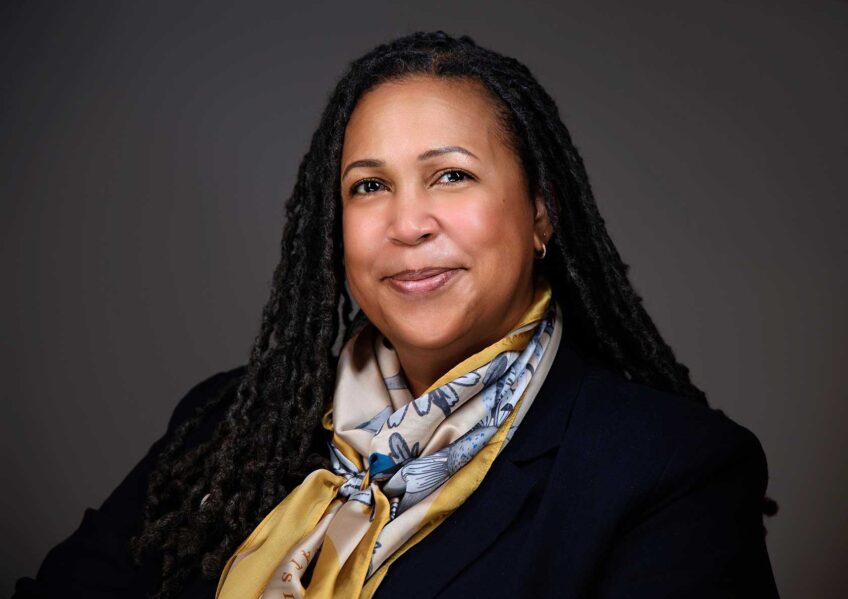
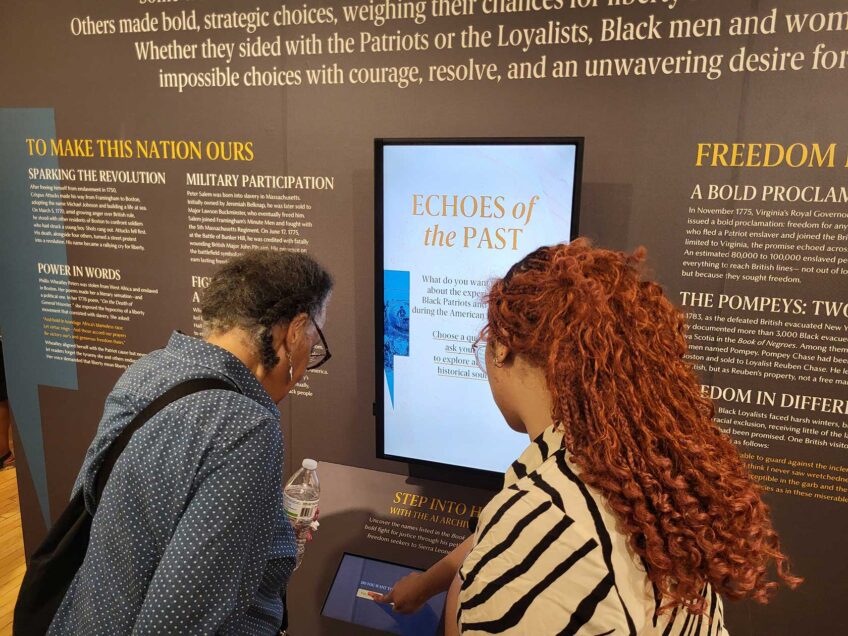
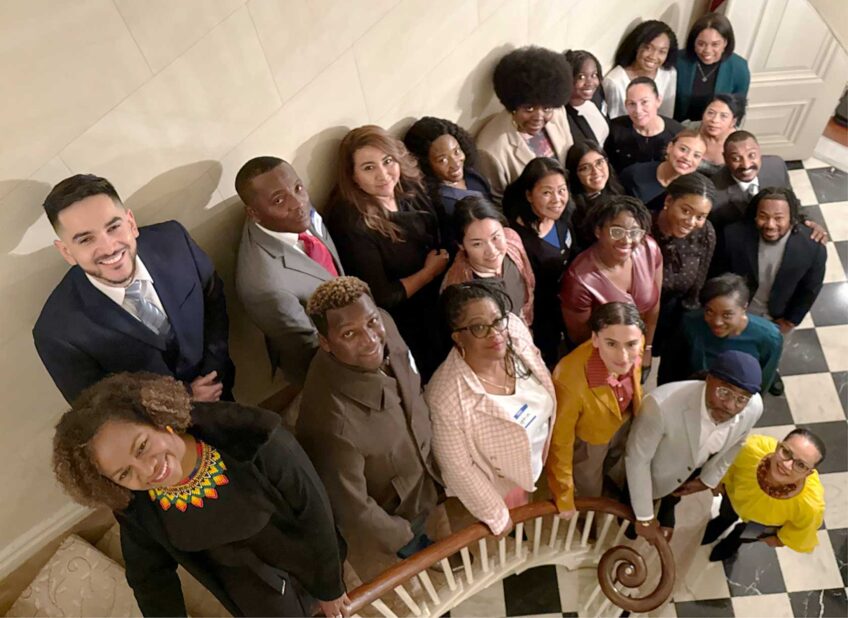
Leave a Reply
You must be logged in to post a comment.